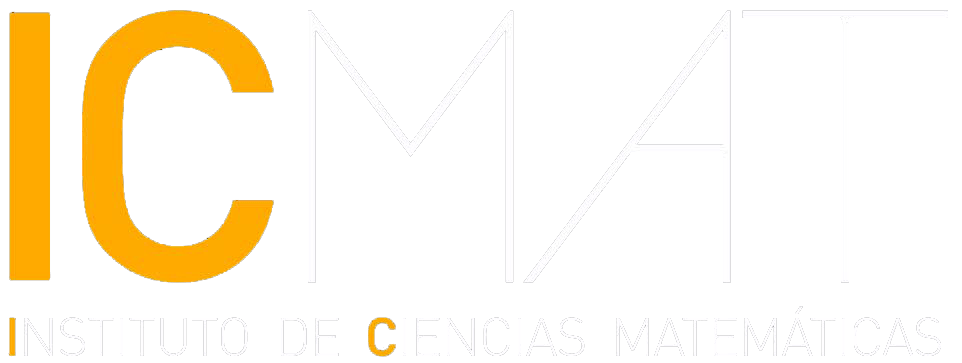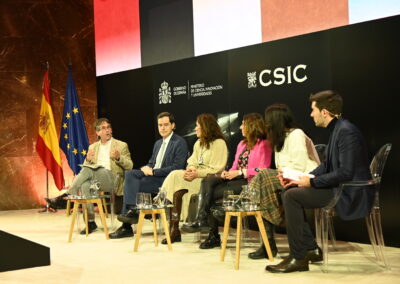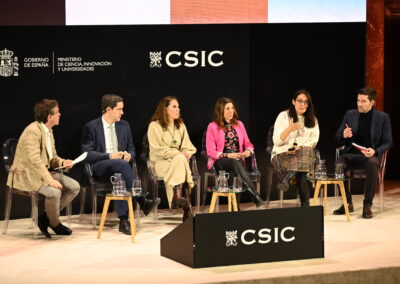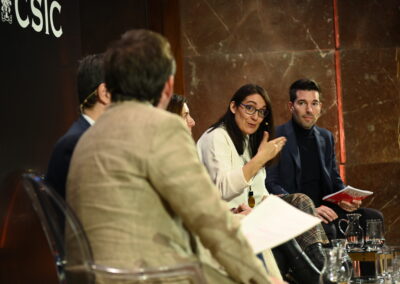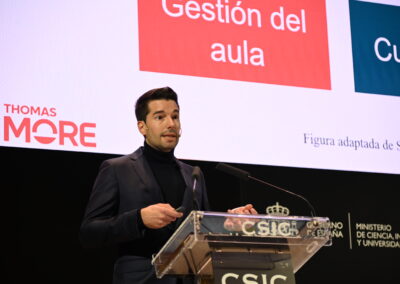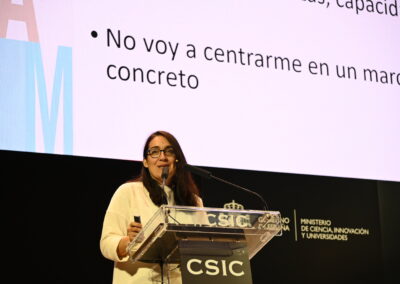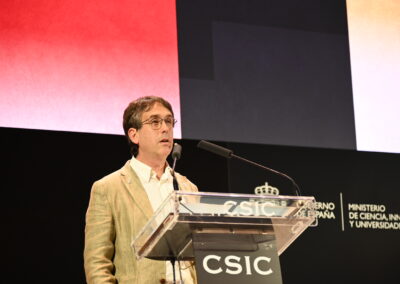Summary of STEAM Education in debate: knowledge and skills
VACC CSIC.
On Monday 20 January 2025, the Spanish National Research Council (CSIC) organised the round table ‘STEAM Education under debate: knowledge and competences’, at the CSIC Assembly Hall in Madrid. The main objective was to analyse, in a constructive way, two approaches to the teaching of STEAM subjects (Science, Technology, Engineering, Art and Mathematics): the competence model, which values the application of knowledge in real contexts, and the knowledge-centred model, which defends the need for a solid and well-structured disciplinary base. Two international experts on these issues, Digna Couso (Autonomous University of Barcelona) and Claudio Vanhees (Thomas More University of Applied Sciences, Belgium), were joined by Salomé Cejudo (CSIC at School), David Cervera (Director General of Bilingualism and Teaching Quality, Community of Madrid, Carmen Tovar (Director of the National Institute for Educational Assessment) and Javier Aramayona (Director of ICMAT). As an introduction to the round table, Couso and Vanhees gave a brief presentation introducing the main ideas of each approach.
The initiative, promoted by the Science Education working group of the CSIC’s Deputy Vice-Presidency for Scientific Culture and Citizen Science (VACC-CSIC) and the Institute of Mathematical Sciences (ICMAT, CSIC-UAM-UC3M-UCM), served as a celebration of International Education Day.
This content has been automatically translated. The original text may differ slightly
